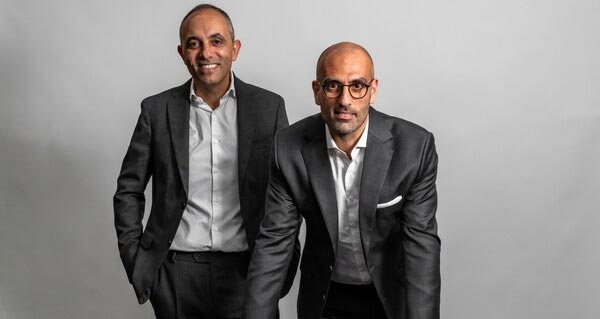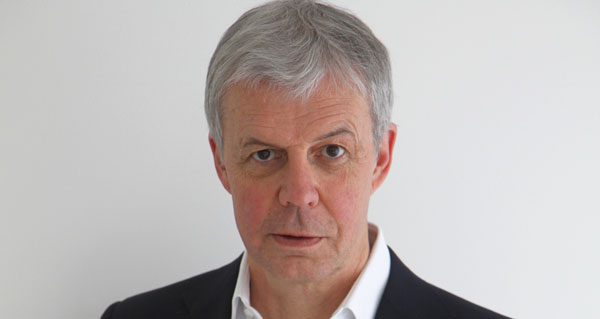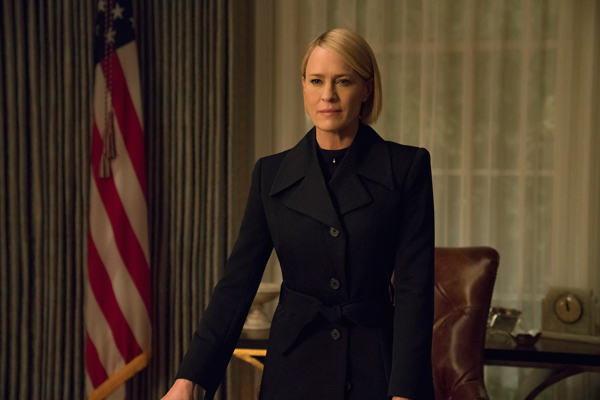PREMIUM: CEO Martin Stewart tells TV MEA about how OSN is reinventing itself for the future.
TV MEA: When you took on the post of CEO at OSN, what were some of the key strategies you felt you needed to put in place to better position the company in a changing media environment?
STEWART: From a big-picture perspective, I didn’t think we were obsessing enough about the customer. The media industry globally, and in the Middle East especially, is a fast-changing one. We needed to be much more in tune with what our customers were thinking and feeling and experiencing. So that was the first big mindset change. The second one was around the need to be obsessed from a digitization point of view—not just in terms of how we serve our customers with product, but also how we interact with them, how we communicate with them and within our own organization how we can be much more joined up and agile and data-cenric in how we make decisions. The third thing was the need for partnerships, especially in our region. It’s still quite a fragmented industry, and that fragmentation has meant that we haven’t managed to fulfill the potential that the region has as a whole to deliver a big, successful, profitable media economy. We needed to find ways to work better with people in order to service clients’ ever-changing needs.
TV MEA: Tell us about how you’re positioning WAVO. How has the platform been received so far?
STEWART: If you join us as a DTH subscriber you’ll get access to OSN Play, which is our on-the-move companion subscription. We recently added more live-streaming channels, taking the total number of live-TV channels up to 60. WAVO is our standalone OTT offering for $9.99 [a month]. We launched WAVO last summer. What happened in the first year was very pleasing to us, but we decided we needed to do a big technical overhaul if we were going to be able to fulfill the potential of the great content we have. So we took the decision to pause while we did that, which was a difficult decision to make. It was the right thing for us to have done. That’s what we’re focusing on at the moment.
TV MEA: You’ve partnered with Netflix. Why was that alliance important, and how is it progressing?
STEWART: We have relationships with many great content suppliers and I don’t want to be disrespectful to any of them, but there’s no doubt that Netflix is a hugely successful studio. It’s redefined the meaning of scale, it’s redefined the approach that people have to creating content by being incredibly local, it’s taken the HBO model and globalized it. And I think the content they produce is incredibly interesting and attractive. They partner that with a very good technical service, but their focus is not on their platform, it’s on their content. That makes us natural partners because we want to bring great content to our customers. If you want to get the best in global entertainment and local entertainment, you should be able to come to OSN and fulfill that aim. So partnering with Netflix helps us toward that target. We know that a lot of our customers are going to like Netflix content, so we’re just making it easier for them to access it as part of their subscription with us. And it gives Netflix access to our customer base, which is a benefit to them. I think it’s a win-win.
TV MEA: Is Netflix integrated into your set-top box? And how does billing for the service work?
STEWART: At the moment, because we’re still rolling out our new set-top boxes, it’s just a simple add-on for our customers. With our new box coming out shortly, it will be an app on the box and you will be paying us as part of your subscription, and then we’ll pay the money to Netflix. Ultimately we hope to develop the relationship so that through one EPG and one remote control, you’ll be able to search for Luke Cage or Jessica Jones or The Rain or whatever, and then you’ll go to the part of our box that has that and you’ll enter the Netflix interface to consume it. We’re very excited about the relationship with them because they are investing in making some globally attractive content. It’s an important partnership for us.
TV MEA: Shortly after your arrival at OSN, I recall you unveiling new pricing and packages. Can you tell us about the thinking behind your offerings to subscribers and how you’re giving them flexibility in their choices?
STEWART: Our legacy is our strength, but it’s also something that has held us back from fulfilling our full potential. Over the history of OSN it’s been a very high-priced premium product, appealing to the higher end of potential customers. And that was great for its time. But the world has moved to a point now where people have access to content online in a way that they never did five years ago. And that means that people’s perception of value changes, so you need to be able to offer a great service with great content at a great price. We had to recognize that our pricing only suited the pockets of a relatively small portion of our region’s potential customers. We’re trying to find ways to evolve our pricing and maintain our premium base and our premium positioning. We are the home of entertainment in the region, and that means we should be able to attract a good price for a good service with good content. But we also need to be able to sell subsets of that content at different prices. We have to recognize that everybody loves what we’re trying to sell, but they can’t all necessarily afford it. In a world with very strong free to air and very high levels of availability of pirate product, you’ve got to take that into account when you’re pricing for the broader market. And salaries in the GCC countries are not reflective of the salaries in the rest of the region. We’ve been trying to make our content as accessible as possible, and we’ve still got a ways to go. We haven’t finished how we’re evolving our offering.
TV MEA: How important is local Arabic-language content investment for OSN? And content for the Indian and Filipino demographics in the region?
STEWART: We’ve been extremely successful by having multi-decade relationships with international content providers—whether they are Western or Filipino or South Asian companies—and local Arabic production companies. So we have four sets of relationships. Two realities have been important to us. One is that the market is dominated by, frankly, some irrational legal competition where people are distorting the market by the prices they’re paying. They’re not making a profit; they’ll never make a profit. And that hurts the broader economy in the medium and long term because it doesn’t create sustainable businesses. And then, of course, you have the astonishing levels of piracy that you see in this region that you don’t see anywhere else in the world. With that type of a market situation, it’s important for us to have something that is ours, that is unique to us, and that means original Arabic-language content. The content we’ve funded and financed goes onto our Yahala channel group—those channels get 40 percent of all of our viewing, despite being only 15 percent of the total content. So Arabic language is unsurprisingly hugely important in a market that is dominated by Arabic speakers! We’re also working with South Asian content providers, particularly Star India. We’re doing exciting things with them that will be along the lines of exclusive original content. We hope to build on that. It’s really the pattern that almost all incumbent broadcasters around the world are following. You can’t just rent things anymore and expect to be successful. You’ve got to have something that gives you a differentiator, and original content is an important part of that, along with great service, great pricing and the ability to have great partnerships.
TV MEA: I know Ramadan tends to be a key viewing period. Do you focus your originals around that time of year?
STEWART: We had a pretty good Ramadan lineup—between the things that we bought or financed and our partners, we had more than 25 shows for Ramadan this year. But that is a bit of a drop in the ocean compared to the total number of shows that go out [during that period]. We make sure that we have something, but we’re not expecting to try and win the Ramadan battle; that’s a losing proposition. Anything we put out, we look to broaden the viewing windows throughout the year. Our Ramadan shows will go onto box set, binge-watch, catch-up services through the summer. I know viewership during Ramadan is extraordinarily high, but it’s impossible for everybody to watch all the content that’s been produced. It deserves to be watched, so we immediately put it into rotation on our other on-demand or catch-up services and our OSN Play service. A lot of so-called Ramadan content will actually be properly enjoyed outside of Ramadan anyway.
TV MEA: You mentioned box sets and catch-up—how do you approach windowing titles so they reach as wide an audience as possible?
STEWART: We are at the mercy of the content owners. We have to negotiate as many of these rights as we possibly can. Ideally, I’d like to have completely unfettered rights so we can test different ways of promoting shows. You can run it on a weekly basis or a daily basis and get different results. It depends on the popularity of the show and whether people are prepared to wait and stick with it.
TV MEA: How are you battling the piracy problem?
STEWART: OSN and MBC jointly set up the MENA Broadcast Satellite Anti-Piracy Coalition, which has expanded its remit beyond just satellite to all forms of piracy. Most of the industry has now come together in a pretty coordinated action. The thing that is lacking is a proper regulatory framework to grow the media market to its full potential. That’s not just to the benefit of the region’s only privately owned media company—that’s us—it’s for the general betterment of the whole economy. [The industry is] losing hundreds of millions of dollars through having a very subpar media economy. The reason for that is the lack of a proper regulatory framework that governs both the protection of IP throughout the region and rigorous enforcement of any such framework. And [the industry needs] an appropriate competitive framework that defines and governs the behavior of anybody who wishes to play in the market. Unless we have a properly regulated, competitive framework, the media economy will not reach its full potential.
TV MEA: You mentioned market distortion earlier, with some companies paying inflated prices for content. I know that has been the case particularly in the sports space. Are government-backed incumbents still driving up costs or has there been some modulation?
STEWART: No, it’s gotten worse, by a multiple. It’s not just sports; it’s all forms of content. If you’re a content owner, you’re having a great time, but it certainly doesn’t help the region. And it doesn’t help consumers because it isn’t sustainable.
TV MEA: How do you approach the acquisition of sports rights?
STEWART: Sports is a niche business. We have a very good lineup of cricket, golf, rugby, fight sports, motorsports, cycling and American college sports, all of which appeal to certain audiences, fanatically so in some cases. It’s not the main driver of our business. And to be honest, we are very simple about how we make decisions. We endeavor to be a data-driven business; we work out what rights are worth based on what we can see in the market, and what that opportunity is. They are straightforward decisions. If I’m paying $100 and the bid is $300, you can make that decision pretty easily.
TV MEA: Sports is the main reason for the high cable subscription fees in the U.S., so the skinny bundle is becoming more popular. Do you offer the ability for consumers to pick and choose what services they want?
STEWART: Effectively, the pricing we put in place last year provided people with the ability to buy subsets: the general entertainment pack, the movies pack, the sports pack or buy them all. That was a break from the past when you had to buy everything.
TV MEA: What are your key growth initiatives over the next 12 to 18 months?
STEWART: We’re very excited about the reboot of the technical side of WAVO. We’re excited about the partnership with Netflix. We’re looking very closely at the possibility of increasing our Arabic-language content. I hope that the situation in the region, economically and geopolitically, begins to ease a bit, but those are matters beyond our control. All we can do is keep trying to focus on providing the best content that we possibly can, either through acquisition, creation or partnering; make sure our service is the best it can be; and make sure the pricing is as appropriate as we can get it for the pockets of the people who live here. And we’ll keep lobbying governments and content providers about the need for a sustainable business model for the economy as a whole if it’s going to prosper in the long run. Whether it’s legal overbidding or pirate theft, neither of those two things is going to create a long-term and sustainable economy.
 TVMEA
TVMEA





